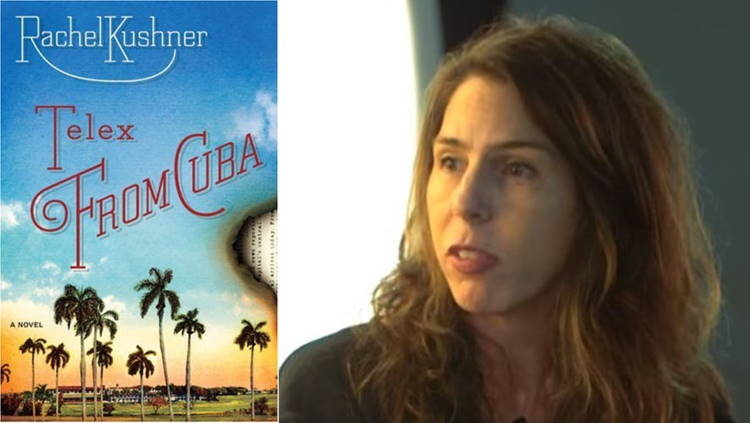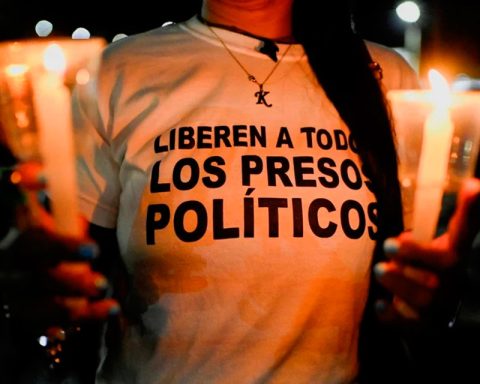Havana Cuba. — It is very difficult for most North Americans to have an exact image of Cuba and Castroism. Whether they are politicians, journalists, artists, intellectuals or tourists, stereotypes, preconceived ideas, superficiality, paternalism, the notion of the noble savage, dazzlement by the landscape , the people, the music. In many, especially in the most liberal and left, there is an underlying feeling of guilt with a certain dose of morbidity.
Those conceptions, which do not change even when they travel to Cuba and come into contact with reality —
And for the record, I am not talking about extreme cases such as the Venceremos Brigade, Pastors for Peace, Medea Benjamin and Gloria Rivas—they have been reflected in films, documentaries and books. An example of this is the novel Telex from Cubaby Rachel Kushner, published by Scribner in 2008. In this book, the author, born in Oregon in 1968, narrated the lives of several American families settled in the 1950s on land belonging to the United Fruit Company and the Nicaro Nickel Company, in the east of the Island.
Telex from Cuba it was very well received by critics and was one of the most widely read books in the United States in 2008. The success of the novel, more than its literary qualities, was due to the fact that at that time there was great interest in Cuba in the world and many expectations about his future: less than two years ago Raúl Castro had replaced his brother Fidel at the head of the regime and it seemed that irreversible changes would take place.
It is no coincidence that in the novel, which takes place at the time of the insurgency that overthrew the Batista regime, there are more references to Raul Castro than Fidel. Let us remember that Del Stites, the eldest son of a wealthy North American family from Preston, ran away from home to join the guerrilla led by Raúl Castro in the Sierra Cristal. The young man deserts immediately after the revolutionary triumph, when he witnesses the first execution.
There is no doubt that Rachel Kushner, also the author of The flamethrowers (2013), is a good writer, skilled in recreating environments. In Telex from Cuba, the characters, particularly Everly Lederer and KC Stites, are vivid, moving. The descriptions brim with beauty, poetry, sensuality. The weak part of the novel are the potholes and gaps that the writer has in relation to the history of Cuba.
Although Kushner tries to be objective, she goes overboard in the romantic treatment she gives to the revolutionaries, in the description of real characters like Carlos Prío, in the importance she attributes to Clavelito —when was it that Batista prohibited Santería and to the radio healer of “put your thoughts on me”?—, in the caricatured anti-American speech he attributes to Fidel Castro in Preston, in the dramatic evacuation of the North Americans in December 1958, which is more reminiscent of the withdrawal from Saigon than what It really happened in Cuba at the triumph of the revolution.
Apparently, the sources of Rachel Kushner (her mother, her grandparents, her aunts), who lived in Cuba, when it came to recounting her experiences, were betrayed by longing and the long time that had elapsed. And above all, because of her misunderstanding of the country and its people. The rest was carried out by Rachel Kushner’s imagination and notions about Cuba, which are not very different from those of other liberal North Americans, who feel guilty for all of Cuba’s misfortunes, without finding a way to remedy them.
Kushner contrasts the paradisiacal way of life of the North American protagonists of his novel with the misery and backwardness of Cubans before 1959. But he exaggerates. It is not that in Cuba there was no misery, inequality and social injustice. If they had not existed, the Castro revolution would not have been possible. But they did not reach the extreme that the writer reflects, where Cuba would be not very different from Duvalier’s Haiti.
Conspiring against the credibility of the story told by Kushner is the unlikely subplot of the French adventurer Christian de La Maziere, a former Nazi turned arms supplier and adviser to the Castro rebels, and his relationship with Rachel K —a mocking wink from the writer, a feigning alter ego of hers?—, the zazou dancer who becomes Fulgencio Batista’s lover to extract information from him for Castro. Totally expendable that subplot, is the worst of the novel.
Nevertheless, Telex from Cuba It is a beautiful, nostalgic, sad book. It can be enjoyed by those who aspire to something better than Danielle Steel’s best sellers. But, despite what literary critics have said at the time, in terms of knowledge of Cuba, it does not contribute much.
OPINION ARTICLE
The opinions expressed in this article are the sole responsibility of the issuer and do not necessarily represent the opinion of CubaNet.
Receive information from CubaNet on your cell phone through WhatsApp. Send us a message with the word “CUBA” on the phone +1 (786) 316-2072, You can also subscribe to our electronic newsletter by giving click here.


















